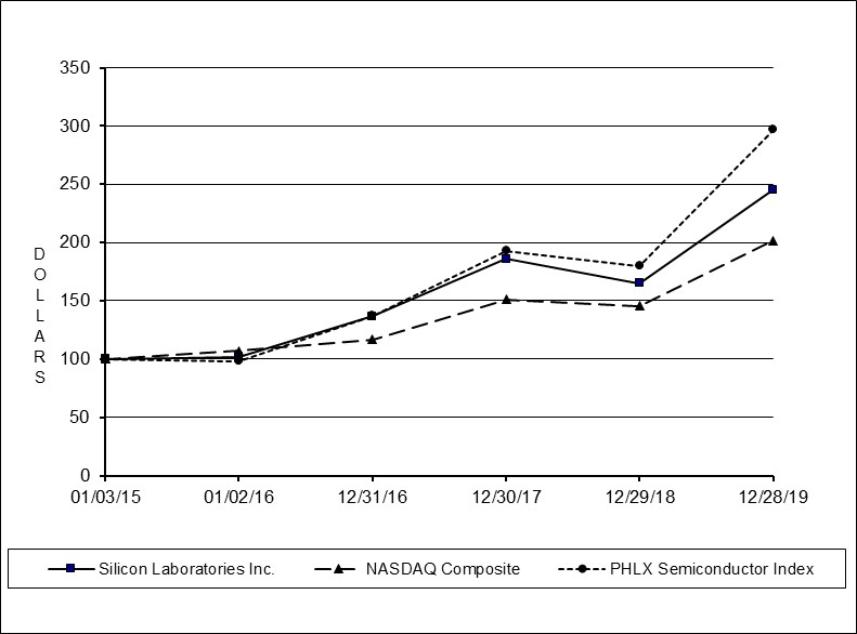Competition within the numerous markets we target may reduce sales of our products and reduce our market share
The markets for semiconductors in general, and for mixed-signal products in particular, are intensely competitive. We expect that the market for our products will continually evolve and will be subject to rapid technological change. In addition, as we target and supply products to numerous markets and applications, we face competition from a relatively large number of competitors. We compete with AltoBeam, Analog Devices, Aura, Broadcom, Cypress, Dialog, Espressif, Infineon, Maxim Integrated Products, MaxLinear, MediaTek, Microchip, Nordic Semiconductor, NXP, Qualcomm, Rafael, Renesas, STMicroelectronics, Synaptics, Telink, Texas Instruments and others. We expect to face competition in the future from our current competitors, other manufacturers and designers of semiconductors, and start-up semiconductor design companies. As the markets for communications products grow, we also may face competition from traditional communications device companies. These companies may enter the mixed-signal semiconductor market by introducing their own products or by entering into strategic relationships with or acquiring other existing providers of semiconductor products. In addition, large companies may restructure their operations to create separate companies or may acquire new businesses that are focused on providing the types of products we produce or acquire our customers.
We may be the victim of business disruptions and security breaches, including cyber-attacks, which could lead to liability or could damage our reputation and financial results
Information technology system and/or network disruptions, regardless of the cause, but including acts of sabotage, error, or other actions, could harm the company’s operations. Failure to effectively prevent, detect, and recover from security breaches, including cyber-attacks, could result in the misuse of company assets, disruption to the company, diversion of management resources, regulatory inquiries, legal claims or proceedings, reputational damage, loss of sales and other costs to the company. We routinely face attacks that attempt to breach our security protocols, gain access to or disrupt our computerized systems or steal proprietary company, customer, partner or employee information. These attacks are sometimes successful. These attacks may be due to security breaches, employee error, theft, malfeasance, phishing schemes, ransomware, faulty password or data security management, or other irregularities. The theft, loss, destruction, unavailability or misuse of personal or business data collected, used, stored or transferred by us to run our business could result in increased security costs or costs related to defending legal claims. Industrial espionage, theft or loss of our intellectual property data could lead to counterfeit products or harm the competitive position of our products and services. Costs to implement, test and maintain measures to promote compliance with applicable privacy and data security laws as well as to protect the overall security of our system could be significant. Attempted or successful attacks against our products and services could damage our reputation with customers or users and reduce demand for our products and services.
Changes in the Privacy and Data Security/Protection Laws Could Have an Adverse Effect on our Operations
Federal, state and international privacy-related or data protection laws and regulations could have an adverse effect on our operations. Complying with these laws and the possibility of proceedings against us by governmental entities or others in relation to these laws could increase operational costs. In May 2018, the European Union’s General Data Protection Regulation (“GDPR”) went into effect, replacing the EU’s 1995 Data Protection Directive. The costs of compliance with the GDPR and the potential for fines and penalties in the event of a breach of the GDPR may have an adverse effect on our operations.
We may be subject to information technology failures that could damage our reputation, business operations and financial condition
We rely on information technology for the effective operation of our business. Our systems are subject to damage or interruption from a number of potential sources, including natural disasters, accidents, power disruptions, telecommunications failures, acts of terrorism or war, computer viruses, theft, physical or electronic break-ins, cyber-attacks, sabotage, vandalism, or similar events or disruptions. Our security measures may not detect or prevent such security breaches. Any such compromise of our information security could result in the theft or unauthorized publication or use of our confidential business or proprietary information, result in the unauthorized release of customer, supplier or employee data, result in a violation of privacy or other laws, expose us to a risk of litigation or damage our reputation. In addition, our inability to use or access information systems at critical points in time could unfavorably impact the timely and efficient operation of our business, which could negatively affect our business and operating results.
Third parties with which we conduct business, such as foundries, assembly and test contractors, distributors and customers, have access to certain portions of our sensitive data. In the event that these third parties do not properly safeguard our data that they hold, security breaches could result and negatively impact our reputation, business operations and financial results.
